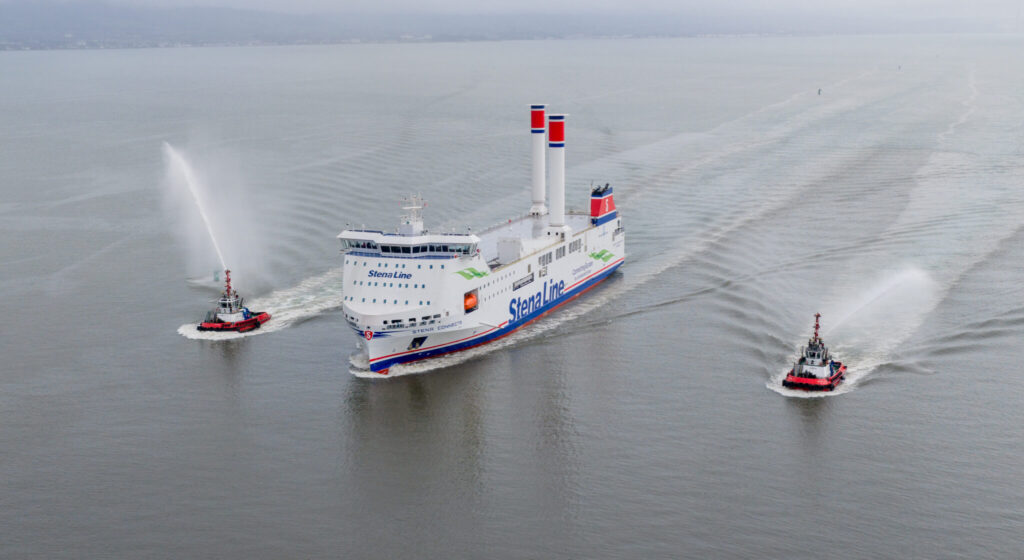Steve Harding explains how better water management can rein-in operating costs, safeguard supply chains and avert ecological catastrophe.
Last month, economists at COP29 issued a dire warning: achieving climate resilience will demand $1 trillion in annual funding by 2030. This isn’t just a number; it’s a lifeline for communities grappling with the harsh realities of climate change, including those in water-scarce regions. Yet, as the global climate conversation evolves, one truth has become glaringly apparent – water, our most essential resource, often takes a back seat in sustainability discussions.
At this year’s COP in Baku, despite the presence of well-meaning individuals and organisations, controversies overshadowed the agenda once again. Remarks by the host declared fossil fuels a ‘gift from God’ – and revelations about the COP29 chief executive’s discussions on new oil and gas projects painted a troubling picture of priorities.
In the vacuum of authentic leadership on critical issues like water stewardship, businesses have a unique opportunity to step forward. Water scarcity is not an inevitability. It’s a challenge we can solve. But it calls for bold leadership, collective will and actionable strategies.
The underestimated crisis of water scarcity
Water scarcity affects over 4billion people worldwide, a number set to rise with population growth, urbanisation and climate change intensifying the pressure on water systems. Yet, water remains one of the most underrepresented topics on the global sustainability agenda.
Why does this continue to be the case? The reasons are manifold. Water challenges are hyper-local, making global policy solutions more complex. Its critical role in food security, energy production, and industry often relegates it to the background of broader conversations about climate resilience. Add to this the misconception that water is an infinite resource, and it becomes clear why leadership in this space has been slow to emerge.
But ignoring the water crisis is no longer an option. By 2050, global water demand is projected to increase by 55%. Without proactive interventions, water scarcity could displace hundreds of millions of people and undermine global stability.
Why leadership is lacking and where businesses can step up
The lack of leadership in water stewardship stems from chasmic gaps in both accountability and alignment. Unlike carbon emissions, which have a unifying metric in CO2 equivalents, water usage lacks a universally-agreed framework for measurement and reporting. This makes it difficult for governments and organisations to set benchmarks or enforce regulations.
This is coupled with the fact that water issues often don’t capture the public imagination in the same way that melting glaciers or wildfires do. While these are undeniably important global issues, they are also more visually and emotionally compelling than a drying reservoir or aquifer depletion.
This is where businesses can lead. With the right incentives, industry has shown its ability to drive sustainability efforts – take the plummeting costs of renewable energy as a prime example. Businesses can also play a pivotal role in advancing water stewardship by:
Driving innovation: Technologies like water recycling, smart irrigation and leak detection can significantly reduce water usage in agriculture and industry. And investments in research and development can help scale these solutions globally.
Advocating for policy reform: Businesses can leverage their influence to advocate for more transparent water policies, including pricing models that reflect the true cost of water.
Engaging consumers: Through education and awareness campaigns, businesses can empower consumers to adopt water-saving practices in their daily lives.
Cross-sector collaborations: Partnerships between the private sector, governments and not-for-profit organisations can align goals and amplify impact. A great example is the recent trend of corporate commitments to replenish more water than they consume, setting a precedent for others to follow suit.
The business case for water stewardship
Sceptics might question why businesses should invest in water sustainability. The answer lies in the bottom line. Water shortages can disrupt supply chains, increase operating costs, and damage reputations. Conversely, proactive water stewardship can drive efficiency, reduce risks, and open new market opportunities.
Take renewable energy as a prime example. Once seen as costly and impractical, solar and wind technologies are now among the most affordable energy sources. The same trajectory is possible for water-saving technologies, if businesses and investors rally behind them.
Moreover, customers increasingly favour brands with strong sustainability credentials and are actively seeking them out. Companies that position themselves as leaders in water stewardship are not only working to address one of the biggest global risks we face, they are also differentiating themselves and strengthening loyalty among environmentally-conscious consumers.
A call to action: from crisis to collaboration
As a CEO, I believe in the power of pragmatism. Grand gestures alone won’t solve the water crisis. What we need are actionable, measurable steps that involve all stakeholders.
Water stewardship must be embedded into operations and product design. From optimising water efficiency in our supply chain to creating consumer products that encourage conservation, sustainability can be both practical and profitable.
But no single company – or sector – can tackle this issue. Achieving meaningful progress will require unprecedented collaboration. The innovators in the private sector must work hand-in-hand with policymakers, scientists, engineers and civil society to develop scalable solutions that work.
Building a sustainable water future
Water stewardship isn’t just about conservation – it’s about ensuring resilience. It’s about protecting ecosystems, supporting livelihoods, and fostering stability in a world increasingly shaped by climate change.
But above all, it’s about leadership. Authentic, effective leadership with integrity that prioritises action over rhetoric and collaboration over competition.
COP29 may have left many disillusioned, but it also highlighted the urgency of the moment. This is our chance to step up, take responsibility, and set the agenda for a sustainable water future. Together, we can turn the tide.
Steve Harding is founder and CEO at Showerkap, a pioneering UK tech company on a global mission to change people’s relationship with water. Its unique platform enables businesses to monitor and manage water in granular detail – delivering valuable insights that were previously hidden.
Image: Amritanshu Sikdar via Unsplash
















